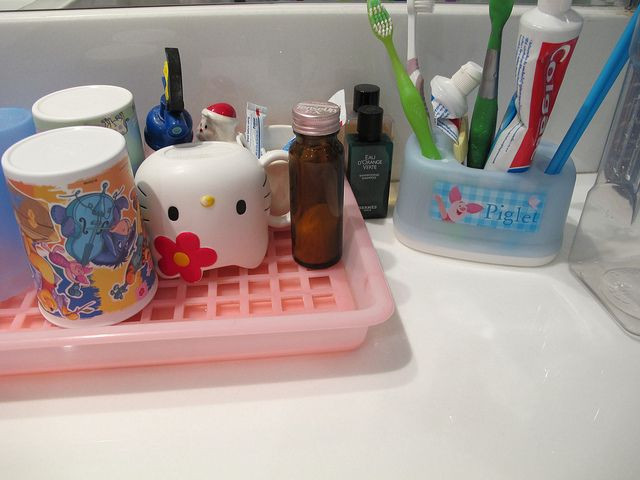When Sharing Is Not Caring: 6 Personal Health Items You Should Never Share, And What Happens If You Do

From a very young age, we’re all taught to share. Whether it’s toys, clothing, or anything else. The words, “sharing is caring,” is something that resonates with many people. Sharing is not only a nice thing to do, it can also make you happy.
In a 2008 study by Harvard Business School, Professor Michael Norton found that spending money on someone else can make you happier than if you were to spend it on yourself. "Intentional activities — practices in which people actively and effortfully choose to engage — may represent a promising route to lasting happiness. Supporting this premise, our work demonstrates that how people choose to spend their money is at least as important as how much money they make," he said.
So, in regard to being giving and caring, sharing is actually a good thing. However, when it comes to hygienic products and toiletries, you should never share these things.
Here are a few of the no-share items:
1. Toothbrush
To some, this might seem gross, but many couples, both married and dating have admitted to sharing their partner’s toothbrush. Research from UkBathrooms.com found that British couples admitted to sharing a toothbrush: “26 percent of respondents did with 70 percent of them stating that they didn’t see it as ‘unhygienic.’ Plus, 56 percent claimed that they had shared the same toothbrush for more than a year.”
However, sharing a toothbrush can cause a number of issues, and it’s actually quite unhygienic. According to the American Dental Association, sharing a toothbrush could result in an increase of infections. This is riskier for people who have compromised immune systems of existing infectious diseases.
2. Razors
This one might not seem as obvious because you’re just using it across your skin, right? Wrong. Razors can spread infections such as warts, folliculitis, or jock itch — even if there is no cut present. You’ll also get a better shave if you use your own. “A good rule of thumb is to replace the blade after five to 10 uses, and you'll be able to keep track more efficiently if you have a blade that's all your own,” said Dr. Jeanie Chung Leddon, Boulder Valley Center for Dermatology, in a WebMD magazine feature.
3. Towels
Towel sharing of any kind is a big no-no, even if the towel was just used after stepping out of the shower. Bacteria such as staph infection bacteria can live on the towel for a few hours, days, or even months. This is probably longer for a towel, since it has the ability to retain moisture and other bacteria, too. Change your towels at least once a week, hang them to dry in an open space, and never share them with anyone — not even family members.
4. Soap
While bar soap does seem to be self-cleaning, the bar can still hold bacteria. The Centers for Disease Control and Prevention recommends liquid soap over bar soap, but if you love using a bar, get your own. In a 2006 study, researchers found that soap was a source of continuous reinfection in dental clinics. “It could be because bars of soap don't usually dry all the way between uses, especially on the bottom, leading to an accumulation of bacteria, fungi, and yeast that can be passed from person to person,” Neal Schultz, a cosmetic dermatologist in New York City, told The Huffington Post.
5. Combs/ Brushes
Combs can spread a number of diseases such as head lice, scabies, and sometimes even a staph infection. Even people in families should not share hairbrushes. However, sharing hair brushes is hard not to do, especially when you visit the salon or barber, but make sure they use some sort of sanitizer before running anything though your hair. You should also clean your personal brushes, fill a bowl with anti-bacterial soap and water, and soak your brushes for about an hour or so. Rinse thoroughly and repeat this process every two weeks.
6. Deodorant
Yuck! Why would you want someone else’s perspiration on you anyway, right? Well, some couples actually share everything, including their deodorant. Sweating breaks down the sweat in your skin. There is, however, a difference between using a roll-on and a stick. According to Dr. Schulz, “with a deodorant stick, he says, you can transfer skin cells and hair, which plays to some people's lower threshold for the gross, but won't result in infection.” A roll-on deodorant has the ability to transfer more bacteria because of its sticky quality.



























